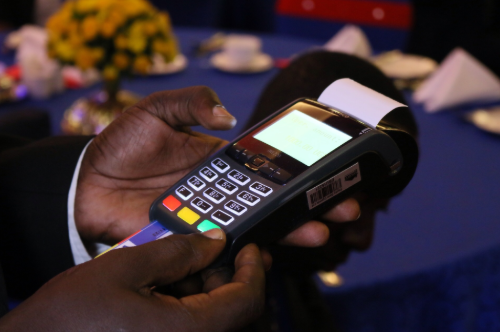Nigeria’s Central Bank Limits PoS Agents to One Principal in New Rules

TLDR
- Nigeria’s Central Bank (CBN) has introduced sweeping reforms to its agent banking framework, requiring all Point-of-Sale (PoS) operators to work exclusively with a single financial institution
- Under the new rules, released on October 6, 2025, agents must be tied to one principal — either a bank, mobile money operator, microfinance bank, or licensed super agent
- The CBN said the overhaul aims to strengthen oversight, promote responsible market conduct, and improve service quality across Nigeria’s fast-growing agent network
Nigeria’s Central Bank (CBN) has introduced sweeping reforms to its agent banking framework, requiring all Point-of-Sale (PoS) operators to work exclusively with a single financial institution from April 1, 2026.
Under the new rules, released on October 6, 2025, agents must be tied to one principal — either a bank, mobile money operator, microfinance bank, or licensed super agent — ending years of multi-platform operations that enabled agents to serve customers of multiple providers such as Moniepoint, OPay, and PalmPay.
The CBN said the overhaul aims to strengthen oversight, promote responsible market conduct, and improve service quality across Nigeria’s fast-growing agent network. Banks and fintechs will be required to publish verified agent lists and enforce limits, including a ₦1.2 million ($816) daily withdrawal cap.
With 5.9 million active PoS terminals processing over ₦10.5 trillion ($7.15 billion) in Q1 2025, the rules could reshape Nigeria’s cash distribution network.
Daba is Africa's leading investment platform for private and public markets. Download here
Key Takeaways
The CBN’s new exclusivity rule marks the most significant shakeup of Nigeria’s agent banking sector since its inception in 2013. Designed to curb fraud, enforce withdrawal limits, and strengthen financial stability, the policy will likely disrupt millions of informal cash transactions nationwide. PoS agents — many operating across multiple fintechs — will have to consolidate under one provider, forcing Moniepoint, OPay, PalmPay, and banks to compete fiercely for agent loyalty. While regulators see the move as key to tightening oversight and reducing illicit cash circulation (₦4.45 trillion outside banks as of August 2025), critics warn it could reduce competition, limit customer choice, and strain rural access to financial services. Compliance within six months will test the operational readiness of fintechs and banks, already investing in geo-fencing, BVN monitoring, and system upgrades. The reforms could redefine how Nigerians access cash — and who controls the last mile of financial inclusion.

Next Frontier
Stay up to date on major news and events in African markets. Delivered weekly.
Pulse54
UDeep-dives into what’s old and new in Africa’s investment landscape. Delivered twice monthly.
Events
Sign up to stay informed about our regular webinars, product launches, and exhibitions.




